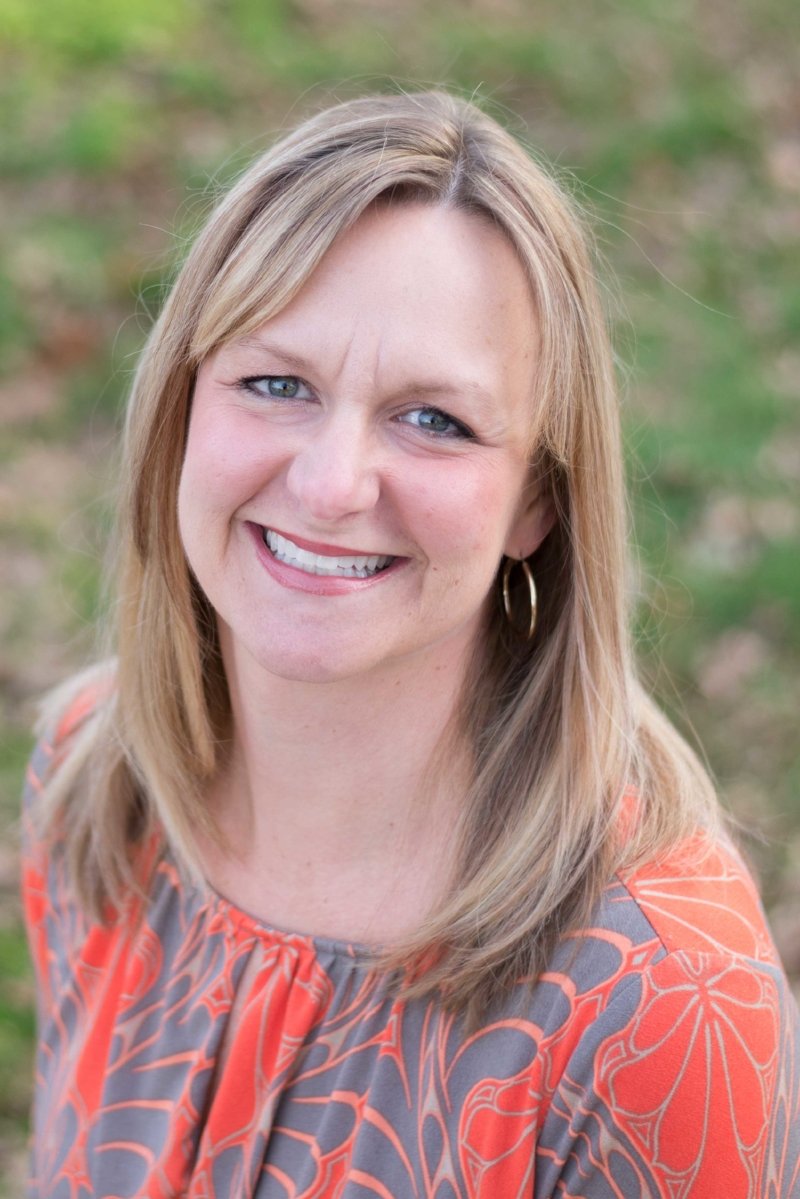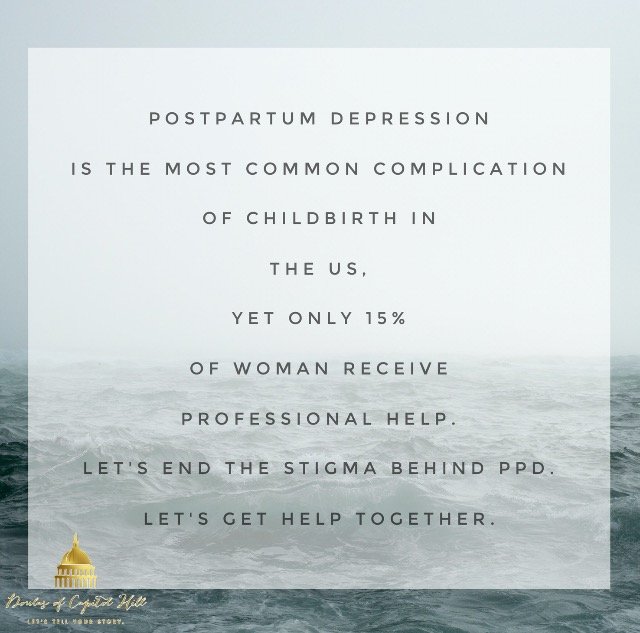1 in 5 Suffer with Postpartum ______? (HINT: It isn't Depression)
Today's guest blog is written by Heather McMillen, LPC is a licensed professional counselor with a private practice in Alexandria, VA specializing in Maternal Mental health. Learn more about her and her practice here. "When I started my private psychotherapy practice, I knew I wanted to do something that used my helping skills in a different way. Through my own experiences and research in birth trauma, I noticed the similarities of how women react to trauma across the board. The additional struggle of caring for a newborn while processing trauma added an extra layer of challenge to help these women and the draw towards improving mental health during pregnancy and postpartum feels very natural to me."
Throughout the work in my practice I have participated in several trainings and attended the Postpartum Support International Conference. Through this education I have learned that PPD (Postpartum Depression) is being grouped into a larger classification of Perinatal Mood disorders that is now specifically including anxiety. It was not until I started seeing such a large amount of highly anxious pregnant women and new moms in my practice that I realized:
We need to get the word out!
Postpartum anxiety is as pervasive, if not more so, than depression.
I think it’s the expectations we put on new motherhood that make the mothers keep the debilitating anxiety even more secret than depression. Anxiety is almost easier to hide, it can be a secret suffering of obsessive thoughts, catastrophic visions of the future and physical symptoms that are ignored or covered up.
Becoming a parent is an anxiety-producing event; there is no doubt about it. We know that change of any kind stimulates anxiety as a way of dealing with things that are unpredictable. Anxiety, and the chemicals that create the sensation, keep you extra alert and ready for challenges. When the brain interprets a situation as a threat, the fight or flight response is activated. Once this happens the survival system for the human body kicks in. The heart begins pumping more blood, digestion shuts down and breathing may shorten. The brain shifts from processing information using problem solving and rational thinking. The brain is now in survival mode looking for a way to stay alive. The problem is that this system is old for our current day lives. This survival system is designed to help you RUN and get away from a tiger that may be threatening you (or your baby’s) life. You don’t need increased blood pressure to deal with strapping your baby correctly into a car seat.
If the anxiety system is working well, you will use it to create productive changes. “I am concerned about the right way to get the car seat installed, I will look for a professional to help.” In this way the anxiety spurs an action that reduces the perceived risk and the anxiety response lessens. New motherhood has many many areas for concern and hyper-vigilance. It makes sense and is normal for moms to worry about baby’s kicking, eating, sleeping, breathing, pooping, and the list goes on and on. This is part of the confusion for figuring out if the anxiety is normal or if it has gotten out of control. A woman who just became pregnant or gave birth suddenly has a tiny vulnerable person to keep alive. There are a lot of new things to worry about.
The intrinsic anxiety that comes from new or repeat motherhood can keep women from getting the help they need. The healthcare providers expect mom to have a lot of questions and write off her anxiety as something to get used to as part of having a baby. Often a woman’s anxiety is seen as complaining or feminine overreacting. I have heard many stories from clients about their worries being invalidated when they do express them- “your fine, don’t worry, it’s nothing”.
This type of well meaning response only serves to activate the worry even further because now she feels unheard and alone in her concern, maybe even feeling “crazy”. A woman needs to be able to access help when the thoughts and anxious feelings start limiting her behavior, affecting her relationship with the baby and interfering with her ability to feel joy. Intuition is also important to pay attention to when trying to decide if you need extra help. If something does not “feel” right it IS worth following up with to get clarification.
When women talk about their fears and realize they are within normal or treatable limits they can see a light at the end of the tunnel. Just speaking the thoughts out loud can be therapeutic. When the thoughts are alone with you in your head they can have so much power. Speaking them out loud with someone who can really hear you can help you gain amazing perspective. Social support will decrease stress in general and will in turn reduce the general physical anxiety symptoms, which allows the brain to reduce the survival response. Once the brain relaxes the fight or flight reaction, mom can relax- I mean really relax.
That will help break the cycle of physical and mental anxiety. Self-care for new moms is a whole topic on its own but that is a cornerstone of the treatment for anxiety. A big part of the work I do is helping reduce the guilt that is associated with self-care so that women can truly address their anxiety symptoms.
Self-care is not a luxury; it is imperative.
Mindfulness exercises, physical exercise and sleep are also tools that can be useful in treating postpartum anxiety.
Postpartum Support International's motto is You Are Not Alone.
There are many resources available to support, educate and facilitate change. Human beings are social animals, we are programmed to need support during challenging times. If reading the information here about anxiety makes you wonder about your own symptoms please know that everyone qualifies for help. PSI has many wonderful resources on their website including free support groups, online support groups, a “warmline” and a list of local therapists- and the resources are not just for depression! An excellent book to read for more information is Dropping the Baby and Other Scary Thoughts by Karen Kleiman and Amy Wenzel. Share your experiences with your friends and family as well- The best way to reduce the stigma for new mothers and mental health in general is talking about it!



